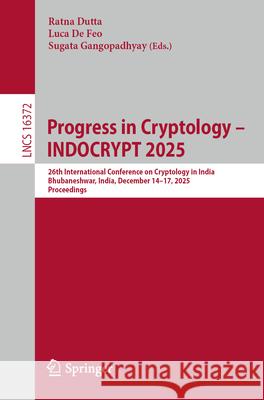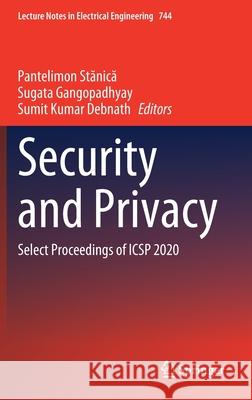topmenu
Wyniki wyszukiwania:
wyszukanych pozycji: 2
 |
Progress in Cryptology - Indocrypt 2025: 26th International Conference on Cryptology in India, Bhubaneshwar, India, December 14-17, 2025, Proceedings
ISBN: 9783032133007 / Angielski Termin realizacji zamówienia: ok. 16-18 dni roboczych. |
cena:
265,66 |
 |
Security and Privacy: Select Proceedings of Icsp 2020
ISBN: 9789813367807 / Angielski / Twarda / 2021 / 176 str. Termin realizacji zamówienia: ok. 16-18 dni roboczych. |
cena:
402,53 |










